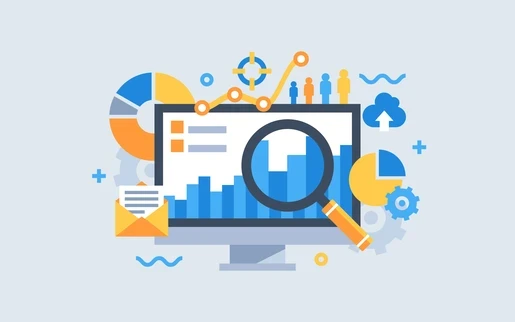Data privacy is a global requirement. From GDPR (EU) to CCPA (California) and PDPA (Singapore), there are now more privacy laws in UK, USA and Singapore than ever before, with many still yet to be discussed and enforced. Although a necessary movement, multinational companies are, consequently, struggling to keep up with compliance, with the sheer volume of regulations becoming increasingly daunting. On top of this, business leaders must also stay in the know about emerging technologies, as new advances in areas/fields such as Artificial Intelligence have already been flagged as a threat to privacy. So, what can organisations do to ensure they are on top of data privacy and its associated critical challenges?

In this week’s Q&A, we sat down with Philip Dutton, Co-CEO and Co-Founder of Solidatus, to find out how their compliance tool is helping the enterprise to tackle data privacy. Solidatus is an innovative data management technology company, empowering organizations to unlock the true business value behind their data. Born out of the recognition of a consistent pattern of data management problems, the company works to digitally transform organisations, empowering them to be data-centric and lineage-enabled, and simplifying their adherence to privacy laws in UK and worldwide.
1. What is Solidatus’ ‘regulatory lineage’ solution and how does it compare to other compliance tools on the market in terms of its key features and/or USP(s)?
Solidatus helps organisations simplify their adherence to privacy laws by empowering clients to map the flow of relevant data through their organisation, visualising the mapping against their people, processes and regulatory needs. This demonstrates the impact of data privacy regulations in context and allows for insights that are only possible when all the information is available. This complete transparency is critical to ensuring that data required for regulatory compliance is identified, accurate and complete – and is being used appropriately per data privacy requirements.
Solidatus is the only product that can be used to cover all global regulations. It is rapid, agile, scalable and can show common regulations, indicating the delta where there are differing regulations for each region/country. Collectively, this massively reduces the cost of regulatory compliance for multijurisdictional organisations.
Solidatus: How to become a data-driven organisation
Data powers the cogs of every business today and nearly every company wants to transform through the help of it. In a nutshell, data has become a true

2. Research reveals that by 2022, companies worldwide are likely to spend over £5 billion on compliance tooling. In what ways does Solidatus’ approach to data privacy address regulatory spending and the financial challenges that come with it?
Companies now invest vast sums of money to prove they are in compliance, and organisations with multi-jurisdictional exposure need to meet a profusion of regulations simultaneously. Those that lack complete understanding of their data landscape are forced to re-spend and thereby waste regulatory budgets.
Solidatus delivers a high degree of efficiency, reusability and scalability as the world’s regulatory and data privacy requirements change and expand. Once data items and their metadata are identified, catalogued and modelled, they can be easily mapped to multiple compliance requirements.
Essentially, Solidatus creates one scalable compliance framework that helps organisations proactively address multiple regulations. This reduces the high cost of managing multiple compliance solutions and reduces the risk and costs of non-compliance.
3. Solidatus prides itself on being proactive, rather than reactive, when it comes to compliance. How is this achieved and why is it so important to the company?
Solidatus has a strong track record of delivering the tools needed to rapidly build the major compliance data models. This means that businesses can implement the model and map their data to the reporting requirements well before their first deadline. Our clients’ reputation and reporting success is paramount to our success as a business.
Solidatus: Digital Transformation and the Role of Data Lineage
Elizabeth Squire, Director of Business Development at Solidatus, joined EM360 to discuss data linage and its role in achieving successful digital tran

4. Over 128 countries have data privacy laws, resulting in companies with multi-jurisdictional exposure being overwhelmed. Is Solidatus’ compliance tool the key to tackling this issue?
Yes! Solidatus is made to simplify data complexity and workflow – in this case, overlapping yet differing data privacy requirements. Getting compliance right also means breaking down legacy organisational silos, ensuring there is transparency across systems, people and processes. This is key to capturing all the necessary data required, understanding how data flows, and tracking and reporting exactly how it is used. Our lineage technology maps the data to each privacy law requirement and is the only product to cover all global data protection regulations.
5. Can you give us a case study example that exemplifies how Solidatus is helping organisations to unlock the true value of data privacy and simplify their adherence to privacy laws?
We helped a global investment bank automate compliant, cross-border data sharing. With over 40 million customers, and operating in 64 countries and territories, they had struggled to share data efficiently across the organization due to regulatory complexity and burdensome manual processes. In under six months of using Solidatus, the bank automated data sharing workflows enabling real-time, auditable and compliant data access for all users. By enabling rapid time to data access and reducing the management overhead, it is estimated that the bank has saved $70 Million to date through utilising our product.
Working with Solidatus, the bank unlocked greater business value from data that had been in complex processes. With streamlined and automated data sharing processes, the bank’s data users are saving time, lowering costs and reducing compliance risk, all while delivering results faster and more accurately.
Solidatus: How to Achieve Reliable Automation
How can organisations obtain quality insights to make informed business decisions? The modern enterprise demands transparency, traceability, an

6. In a recent article titled ‘In a changing world, it pays to be prepared’, you write that ‘privacy requires agility’. Where do you see the future of data privacy following the emergence of the pandemic and how can organisations stay ahead of the curve?
There are more data privacy laws expected to be passed, and the existing ones will see increased enforcement and fines; the global data privacy regime will only grow in complexity, putting greater risk on organisations around the world – this is why agility and scalability are so crucial. Companies that had a data privacy solution already in place before the pandemic were more prepared to handle the new challenges of managing sensitive data while their working behaviours changed.
Going forward, data privacy solutions will need to continue to be highly scalable. Companies will be subject to a growing set of laws during a period where many business models evolve post-pandemic, complicating matters further. Businesses need a holistic approach to manage their data to meet multiple data privacy laws, while minimising the costs and the risk of deep fines. With Solidatus, compliance expenditure isn’t narrowly constrained and can, instead, be transformative – an opportunity to elevate and transform a business’ data capabilities.
Liked this article? Subscribe to the YouTube Channel for more educational content in enterprise technology.






Comments ( 0 )